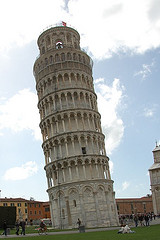Data tells us that as a group, professors are about as self-identifying liberal as they come. In fact, according to an intensive survey ran by University of British Columbia sociology professor Neil Gross and Solon Simmons of George Mason University, “professor” is the most liberal major job group in America. According to the findings roughly 20 percent of professors identified themselves as “any shade of conservative,” a number much lower than a third of the general population. Meanwhile, two-thirds of professors considered themselves some version of liberal as opposed to 23 percent of Americans overall.

A recent Op-Ed in the Star Tribune sought to explain this pattern and its consequences. Just like the profession the article investigates, the arguement is rife with empirical evidence. Some scholars and pundits are quick to assume this underrepresentation of conservatives is congruent with other instances of underrepresentation, the product of discrimination. Neil Gross, however, claims the data shows otherwise. “If you look at surveys that have asked professors whether they’ve been discriminated against on political grounds… only something like 7 percent of those surveyed said they have been,” says Gross.
Graduate schools, the pipelines towards professorship, are also leftward leaning, which makes sense when observing the higher proportion of liberal faculty, but also points the discrimination theory towards graduate school acceptance. To test this, Gross crafted an email based experiment to test how subtle expressions of political affiliation were received by various graduate programs. The findings? “Only the slightest hint—no significant evidence—of bias or discrimination.”
If discrimination isn’t the answer, many hypothesize personal reasoning—values, moneymaking, or personality—are behind the political disparity. Gross doesn’t seem sold on these theories, and offers a different explanation, a process of “political typing” that encourages self-selection. For a long time university culture grew along the lines of inquiry and as a challenge to existing systems of power and wealth, something that naturally shepherded in liberals.
So does this liberal lean matter? Gross doesn’t seem to think it distorts the legitimacy of academia. “In my field of sociology, people will say your politics incidentally will shape what you study, but it doesn’t necessarily shape what you find,” Gross argues. Social psychologist Jonathan Haidt, on the other hand, sees this as a major problem:
When a scientific community shares sacred values… a tribal moral community arises, one that actively suppresses ideas that are sacrilegious, and that discourages nonbelievers from entering. I argued that my field has become a tribal moral community, and the absence of conservatives, not just their underrepresentation, has serious consequences for the quality of our science.
The popular perceptions of academia as a home for liberals makes it seem unlikely it will change any time soon. Especially if Republicans continue to see this exclusion as an advantage by discrediting academia for having a bias. The closing thoughts of the Star Tribune’s Op-Ed eloquently summarizes the consequences of this enduring trend.
Unfortunately, the estrangement will serve only to reinforce the lopsidedness of university politics, undermine the confidence of a large share of the public in expert opinion, and jeopardize the role of the university in public life whenever conservatives are in power.

Comments 5
Chris Uggen — February 1, 2012
I love the way you summarized this piece, Al. Gross and Simmons are really thoughtful about the sources and meaning of these ideological disparities.
here's an old post I'd written on their project: http://chrisuggen.blogspot.com/2007/10/6-percent-solution-gross-and-simmons-on.html
Alex Casey — February 1, 2012
Thanks Chris,
Writing this piece reminded me a lot of a Contexts discovery I read written a little while back about religion in academia.
http://contexts.org/discoveries/a-higher-power-and-the-ivory-tower/
jeffdowd — February 2, 2012
I guess I have to be the uncouth one to point out that empirical reality tends to debunk conservatives worldviews. Perhaps that's an explanation as well. Or are we going to pretend that Charles Murray and Dinesh D'Souza are performing scholarship? As it is, I'm waiting for McGraw-Hill to add Ann Coulter and Michelle Malkin to their Taking Sides series (if that hasn't happened already).
I mean are we so afraid of the accusations coming from the right that we cannot admit that conservatives and liberals assert not just different values but different empirically testable realities.
Inaugural TSP Media Awards for Measured Social Science » Citings and Sightings — March 6, 2012
[...] Breining, “Higher Ed Leans Left. By Why? And So What?” Star Tribune, January 28, 2012. Written up for Citings & Sightings by Alex Casey, this op-ed goes beyond simply reporting Neil Gross and [...]